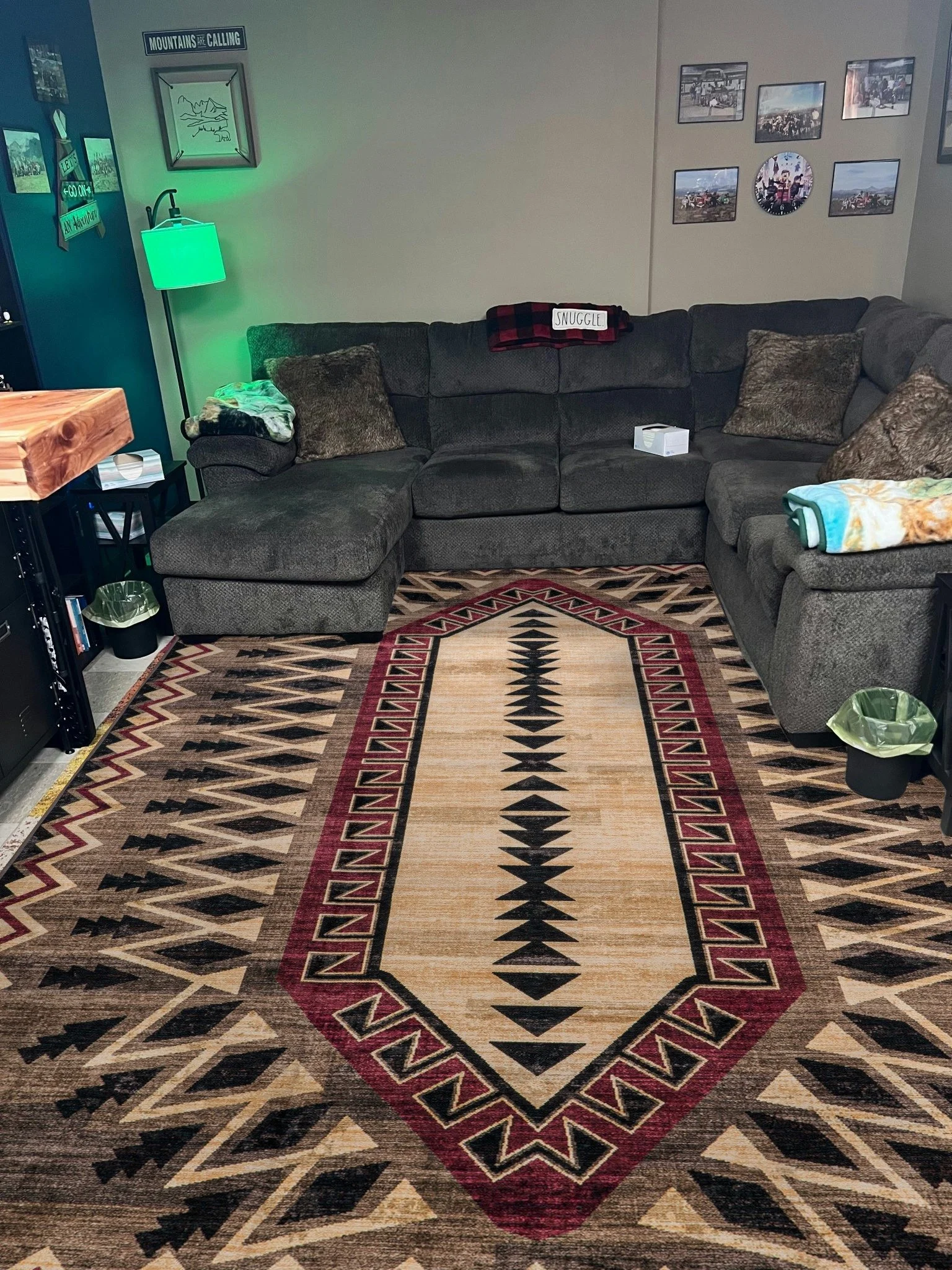
Discover your beautiful path
Gerald "Dwayne" Webb
Counselor in Russellville
Mon-Thu: 9:00AM - 7:00 PM
Fri: 9:00AM - 3:00 PM
Interested in working together?
Book a free initial consultation
Text me
(479) 223-2046
Send me an email
dwayne@beautifulpathcounseling.com
or
Behind the Practice
Beautiful Path Counseling is the counseling practice of Gerald "Dwayne" Webb, a licensed professional counselor in Russellville, AR.
Dwayne brings a lifetime of love and concern for others to his therapeutic work with clients. He has a welcoming air that helps his clients feel free to express their concerns without judgement. He listens well so that his clients feel heard.
Services and certifications
Dwayne is a certified Anger management therapist and verified by Psychology Today.
Dwayne is trained in the following therapies:
-
EMDR (Eye Movement Desensitization and Reprocessing) Therapy is a specialized psychotherapy technique designed to help individuals process and heal from the lingering effects of traumatic events.
How EMDR Works:
Focus on Traumatic Memories: During EMDR sessions, you'll be guided to briefly recall a disturbing memory while focusing on a therapist's side-to-side hand movements or other forms of bilateral stimulation (like alternating sounds).
Reprocessing and Desensitization: This rhythmic stimulation combined with focusing on the memory helps reprocess the way the traumatic event is stored in your brain. The goal is to reduce the intensity and emotional charge associated with it.
Positive Self-Belief: EMDR often incorporates developing a positive belief about yourself to replace negative thoughts and feelings linked to the trauma.
EMDR is primarily known for its effectiveness in treating Post-Traumatic Stress Disorder (PTSD). However, it's also being used for: Anxiety, Panic disorders, Phobias, Depression, & Complex grief.
-
Internal Family Systems Therapy (IFS) is a unique approach to psychotherapy that views your mind as a collection of subpersonalities or "parts." These parts each have their own roles, emotions, and perspectives. Some parts are wounded or carry burdens from past experiences, while others try to protect you from emotional pain.
The goal of IFS therapy is to help you access your core "Self" – a calm, compassionate center within you that has the power to heal. With the guidance of a therapist, you'll:
Identify your parts: Learn to recognize the different parts of your inner system and understand how they interact.
Unburden wounded parts: Help release the pain or negative beliefs held by the wounded parts of yourself.
Strengthen your Self: Empower your core Self to act as the compassionate leader of your internal system, bringing harmony and balance to your inner world.
IFS is an effective approach for addressing a wide range of issues, including anxiety, depression, trauma, and relationship difficulties, offering a path to greater self-understanding and well-being.
-
Brainspotting Therapy (BSP) is a brain-body based therapy that aims to unlock and heal trauma stored within the subcortical brain.
Here's how it works:
Identifying Brainspots: The therapist guides the client to find specific eye positions ("brainspots") that correlate with areas of emotional distress or trauma.
Focused Processing: The client focuses on the brainspot while the therapist provides support. This focus taps into the body's natural healing ability to process and release the underlying pain or trauma.
Harnessing the Body's Wisdom: Unlike traditional talk therapy,
Brainspotting bypasses the conscious mind and works directly with the body's implicit memory system. This can lead to rapid processing of traumatic experiences that may be difficult to access consciously.
Brainspotting is often used for: Trauma and PTSD, Anxiety and depression, Performance enhancement (sports, creativity), & Physical pain with an emotional component.
-
The Gottman Method Couples Therapy is an evidence-backed approach to couples therapy. Based on decades of research with thousands of couples, it focuses on strengthening the core aspects of a healthy relationship.
Goals: The Gottman Method aims to help couples: Increase respect, affection, and closeness. Break through communication barriers and overcome feelings of stagnation. Develop a deeper understanding and empathy for each other.
-
Emotionally Focused Therapy for couples (EFT) places a strong emphasis on the role of emotions in shaping our relationships and well-being. It recognizes that emotions influence our thoughts, behaviors, and how we interact with others.
Premise: EFT believes that negative relationship patterns are rooted in underlying emotional needs not being met. These unfulfilled needs often stem from past experiences and our innate desire for connection and security.
Goals: Help individuals and couples become more aware of their deeper emotions. Teach them how to express these emotions in a way that fosters connection rather than conflict. Restructure negative interaction patterns to create more secure and fulfilling relationships.
-
Trauma-Focused Cognitive Behavioral Therapy (TF-CBT) is a specialized therapy designed for children, teens, and their caregivers who have been affected by traumatic experiences. It aims to address the emotional and psychological consequences of trauma, such as:
• Post-traumatic stress disorder (PTSD)
• Depression
• Anxiety
• Behavioral problems
How TF-CBT Works:
• Combines elements of: cognitive-behavioral therapy (CBT), exposure techniques, and family therapy.
• Teaches skills to: help children and their parents understand and process the trauma, develop healthy coping strategies, and modify negative thoughts and feelings related to the experience.
• Involves both the child and non-offending caregivers: through individual and joint therapy sessions.
• Phased approach: The therapist will gradually work through different components such as relaxation techniques, education about trauma, and processing the traumatic memories.
TF-CBT is an evidence-based treatment, meaning that research has shown it to be highly effective in helping children and families heal from the impact of trauma
-
Cognitive Behavioral Therapy (CBT) is a type of talk therapy that focuses on how your thoughts, emotions, and behaviors are interconnected. The core idea is that sometimes our thoughts can be overly negative or unrealistic, leading to difficult feelings and unhelpful behaviors.
CBT aims to help you:
Identify negative thought patterns: Recognize the harmful or distorted thoughts that contribute to your problems.
Challenge those thoughts: Learn to question if these thoughts are accurate or helpful.
Replace negative thoughts: Develop more balanced and realistic ways of thinking.
Change behaviors: Use practical strategies to change unhelpful behaviors and develop healthier coping skills.
CBT is a structured and goal-oriented therapy. It's often used to help with conditions like anxiety, depression, and stress-related problems.
-
Cognitive Processing Therapy (CPT) is a type of psychotherapy specifically designed to help people recover from post-traumatic stress disorder (PTSD) and similar conditions that develop after experiencing a traumatic event.
How it works: CPT focuses on how a traumatic event changes the way you think about yourself, the world, and the event itself. These changes can lead to more negative thought patterns that keep you stuck in the trauma. CPT helps you:
Identify unhelpful thoughts: Recognize the negative or distorted thoughts stemming from the trauma.
Challenge those thoughts: Learn how to question and reframe the negative thoughts.
Develop healthier thinking patterns: Replace negative thought patterns with more balanced and realistic ones.
Why it's helpful: By changing the way you think about a traumatic experience, CPT can reduce the severity of PTSD symptoms like anxiety, flashbacks, nightmares, sadness, and difficulty concentrating.
-
CLIENT-CENTERED THERAPY (CCT) is also known as Person-Centered Therapy and Rogerian Therapy, is a humanistic approach to psychotherapy. Developed by Carl Rogers, it emphasizes the unique potential of each individual. Here's the core idea:
The Client as Expert: In CCT, the client is the expert on their own lives, thoughts, and feelings. They possess the inner resources to grow, change, and heal.
The Therapist's Role: Therapists don't offer solutions or diagnoses. Instead, they create a safe, accepting, and supportive space. This fosters the client's own self-understanding and ability to find their own answers.
Essential Conditions: Three primary conditions are key in CCT:
Unconditional Positive Regard: The therapist offers warmth, respect, and acceptance without judgment.
Empathy: The therapist strives to truly understand the client's experiences and feelings from their perspective.
Congruence (Genuineness): The therapist is authentic and transparent, fostering a trusting relationship.
Goal: CCT isn't about fixing problems, but about empowering clients to discover their inner strengths and resilience, ultimately leading to personal growth and greater self-acceptance.
-
Somatic Experiencing Therapy (SE) is a body-focused therapeutic approach designed to help people heal from the effects of trauma and chronic stress.
The Premise: SE recognizes that unresolved trauma can become trapped in the body, manifesting as physical and emotional symptoms. Unlike traditional talk therapy, it focuses on the physical sensations associated with traumatic
experiences.
The Process: Therapists guide individuals to gradually become aware of these bodily sensations while offering resources to create a sense of safety and containment. This process helps release the stuck survival energy associated with trauma, allowing the nervous system to return to its natural state of regulation.
Benefits: SE can aid in healing from PTSD, anxiety, depression, and the lingering effects of stressful life events. It may improve overall well-being
-
Therapeutic Play is a psychotherapeutic approach primarily used to help children ages 3 to 12 explore their lives and freely express repressed thoughts and emotions through play. Therapeutic play normally takes place in a safe, comfortable playroom, where very few rules or limits are imposed on the child, encouraging free expression and allowing the therapist to observe the child’s choices, decisions, and play style. The goal is to help children learn to express themselves in healthier ways, become more respectful and empathetic, and discover new and more positive ways to solve problems.

Personalized Pathways
What types of counseling is Dwayne specializing in:
-
Helping teens and adults find:
Find a voice for their concerns and emotions
construct pathways out of their pain
build and maintain those pathways
Bringing hope for a more fulfilling journey
Enhancing positive affect systems (play, humor, adventure, & passion for their journey).
When necessary, helping find meaning for the journey.
-
Helping couples:
Find a voice for their concerns and emotions
constructive ways of managing conflict
build and maintain their friendship & intimacy
enhancing positive affect systems (play, humor, affection, courtship, romance, passion, sexual intimacy, adventure).
build and maintain a system of shared meaning.
-
Helping family groups:
Find mutual understanding.
Explore ways to support one another.
Express individual concerns.
Each member feels heard and seen by each other member.
Come & say hello 👋
1305 East Main Street
Russellville, AR, 72801
72801 USA
Business Hours
Mon-Thu: 9:00AM - 7:00 PM
Fri: 9:00AM - 3:00 PM
Sat-Sun: Closed
Book a free initial consultation
I am happy to get to know you and hear your story in a short meeting.
Text me
(479) 223-2046
Send me an email
dwayne@beautifulpathcounseling.com
or
The paths through my lens





























FAQs
-
Individual therapy = $175/session, Couples therapy = $175/session, Letters written on behalf of clients = $125
-
Yes. Reduced rates are based on individual needs. The reduced rate will be discussed and agreed upon by Dwayne and his client during the first session.
Significantly reduced rates are offered for college students.
-
Aetna, Ambetter from Arkansas Health & Wellness, Anthem Blue Cross, Arkansas Blue Cross and Blue Shield, Arkansas Medicaid, Arkansas Medicare, AR Total Care, Blue Cross Blue Shield of Illinois, CAC, CARESOURCE PASSE OF ARKANSAS, Centene Corporation, CIGNA, EMPOWER Arkansas, Municipal Health Benefit Fund, New Era Life Insurance Company, OptumHealth, PPO Plus, QualChoice, QualChoice of Arkansas, Summit Community Care , Trustmark Health Benefits (CoreSource Little Rock), UMR (formerly UMR Wausau), & UnitedHealthcare / UHIS-UnitedHealth Integrated Services
-
Face-to-face and telehealth sessions are available. Telehealth sessions are offered via Zoom and the Therapy Notes platform.
-
New clients are almost always being accepted. New clients can usually be scheduled within a week, depending on the clients availability.




